- Home
- Hilary Mantel
A Change of Climate: A Novel Page 6
A Change of Climate: A Novel Read online
Page 6
He was not excessively miserable. It seemed to him that the boredom, the routine discomforts and humiliations, the exile from home, the futility of his daily round, were all simple enough to endure. What he could not endure were the thoughts of his heart, and the frequent dreams he had, in which he murdered his father. Or rather, dreams in which he plotted the murder; or in which he was arrested and tried, when the murder was already done. The bloody act itself was always offstage.
When he was twenty years old these dreams were so persistent that the memory of them stained and dislocated his waking life. By day he entertained, he thought, little animosity to Matthew. Their quarrel had not affected what he believed, it had only affected the course of his career; and one day Matthew would die, or become senile, or concede the point, and he could resume that career. He must be the winner in the long run, he thought.
So these dreams, these inner revolts, bewildered him. He was forced to concede that large areas of his life were beyond his control.
On one of his leaves, instead of going home to Norwich, he went to London with a friend. They stayed at his friend’s sister’s house, Ralph sleeping on the sofa. By day, he went sightseeing; he had never been to London before. One night he lost his virginity for cash, in a room near one of the major railway terminals. Afterward he could never remember which station it had been, or the name of the street, so that in later life he couldn’t be sure whether he ever walked along it; and although the woman told him her name was Norah he had no reason to believe her. He did not feel guilt afterward; it was something to be got through. He had not embarrassed himself; there was that much to be said about it.
On his next leave he was introduced to Anna Martin, only child of the very sound shopkeeper from Dereham.
Three years later, Ralph was teaching in London, in the East End. James had come home and was director of what had been the doss house and was now St. Walstan’s Hostel. Ralph went there most weekends. He slept on a folding bed in the director’s office, and was called during the night to new admissions banging on the door, to men taken sick and to residents who had unexpectedly provided themselves with alcohol first, and then with broken bottles, knives, pokers, or iron bars. He arbitrated in disputes about the ownership of dog-ends, lumpy mattresses and soiled blankets, and became familiar with the customs and rituals and shibboleths of welfare officers and policemen.
On a Sunday night he collected the week’s bedding, and listed it for the laundry, counting the sheets stained with vomit and semen, with excrement and blood. On a Wednesday evening he would drop by for an hour to count the linen in again. The sheets were patched and darned, but stainless. They smelled of the launderer’s press; they were stiff and utterly white. How do they do it, he wondered; how do they make them so utterly white?
He became engaged to Anna. They planned to marry when she graduated from her teacher-training college, and go straight out to Dar es Salaam, where a dear friend of James was a headmaster and where a pleasant house would be waiting for them, and two jobs as teachers of English to young men training for the ministry. Sometimes, on the London pavements, Ralph tried to imagine himself translated to this alien place, to the heat and color of this other life. Letters passed to and fro. Arrangements were in hand.
Anna received all this with equanimity. She was planning the wedding, the quiet wedding. A quiet girl altogether; she wore gray, charcoal, dark blue, simple clothes with clear lines. Ralph thought she was setting herself apart, cultivating almost a nunlike air. They did not discuss their religious beliefs; a certain amount was implied, understood. She had taken on the prospect of Africa without demur. “She hasn’t really said much about it,” Ralph told James.
James said, “Good—I suspect enthusiasm.”
The kind of person not wanted in those climes, he said, was someone who rushed with open arms to embrace the romantic deprivations of the life. Anna’s reasoned agreement was a better foundation for their future than constant chatter about what that future might hold.
Later Ralph would think, when we married it was a leap into the dark: we didn’t know each other at all. But perhaps when you are so young, you don’t even begin to comprehend what there is to know.
As for those nunlike clothes—when he had seen more of the world, and was more accustomed to looking at women, he realized that Anna’s style was deliberate, ingenious, and contrived by the exercise of a stifled artistic talent. She had made her own dresses in those days; she could not buy what she wanted in Norfolk, and with her tiny means she would not have dared to enter a London shop. She spent what she had on fabric, buttons, and trimmings; she cut, pressed, and stitched, obsessively careful, tyrannically neat. And so what Anna possessed was unique among the people he knew—it was not sanctity, but chic.
“Freud said,” Emma told him, “that religion is a universal obsessional neurosis.” She looked at him over her glasses. “Tell me now … what happened to the dinosaurs, Ralph?”
“Their habitat altered,” he said. “A change of climate.” She smiled crookedly. He saw that she hadn’t expected an answer. “The trouble with our parents,” she said, “is that their habitat doesn’t change. It hardly varies from one end of the county to the next. Give them a pew, and they’re right at home.”
Emma had got her wish. She was at medical school; and home now for Ralph’s wedding, her book open on her lap and her feet up on the old sofa that she had thrashed so thoroughly in 1939. Emma had grown heavy; the hospital food, she said, was all dumplings, pastry, suet, and that was what she was turning into, dumplings, pastry, suet. Despite this, she had a suitor, a smart local boy called Felix, not one of their Bible study set. She dealt with him by ignoring him most of the time, and did not always answer his letters.
She had grumbled with vigor about the business of a new frock for the wedding, even though her father had paid for it; she would pay herself, she said, if Matthew would go and choose the thing, converse with shop assistants and track down a hat to match. Emma resisted the attentions of hairdressers. Anna, the bride-to-be, offered to take her in hand and see that she got a perm. Emma swore when she heard this, so violently that she surprised herself.
“So, Ralph,” Emma said, “the news from Freud is not all bad. ’Devout believers’—that’s you and Anna—’are safeguarded in a high degree against the risk of certain neurotic illnesses: their acceptance of the universal neurosis spares them from the task of constructing a personal one.’ In other words, one sort of madness is enough for anybody.”
“Do you think it is madness?” Ralph asked. “Madness and nothing else?”
“I don’t think it has any reality, Ralph. I think faith is something people chase after, simply to give life meaning.”
She spoke quite kindly, he thought later. “And doesn’t it have meaning?” he asked.
Emma reserved judgment.
That night his father took him aside. “I want to talk about the arrangements,” he said.
“It’s all in hand. All done. You don’t have to concern yourself.”
“I don’t mean arrangements for the wedding. Why should I concern myself with the women’s business?” His father slid out a drawer of his desk, took out some papers, looked through them as he spoke; this was a family whose members no longer met each other’s eyes. “I mean the arrangements for the future. I have taken advice, and I am going to sell the press. I have a good offer from a publisher of educational books.” Unable to find anything of interest in the papers, he turned them over and stared at their back. “Education, you know—it’s the coming thing.”
“I should hope it is,” Ralph said. He felt at a loss. He ought to be able to give an opinion. “Well, if your accountant—” he began.
Matthew cut him short. “Yes, yes, yes. Now then, I propose to invest a certain amount, the interest to be paid to Walstan’s Trust.” He had managed to drop the “Saint,” Ralph noticed. “I propose to place a smaller amount into a family trust for yourself and Anna and your children. When
you come back from the missions, you will sit on the committee of Walstan’s Trust, which five years from now will need a full-time paid administrator. If you seem fit for it, you will be able to fill that position.”
“Other people may have claims,” Ralph said. This was all he could do—raise small objections. He could not imagine himself in five years’ time. He could not imagine what kind of man he might be, or imagine these notional children of his. I might die in Africa, he thought. There are tropical diseases, and all sorts of strange accidents.
“Well, they may,” said his father. “But I cannot see very clearly who they would be. Your uncle James will be wanting a rest by then, and the children of my colleagues on the committee are pursuing their own paths in life.”
“It seems to be looking too far ahead,” Ralph said.
“Oh,” Matthew said, “I thought the millennia were as naught to you. Really, you know, to plan five years or ten years ahead is nothing. All businessmen do it. We do it when we invest money— though you would know nothing of that.”
“I suppose I wouldn’t.”
“My object, my plan—and here I may say the other trustees agree with me—is that the Trust should be forever administered from Norfolk, no matter how wide its interests may become. It is local money that has set it up—and we must keep our feet on the ground. So you will want to base yourself here in Norwich, or elsewhere in the county if you prefer. When you return I will buy you a house, because you will make no money while you are out in Africa. That goes without saying.”
If that is so, Ralph thought, why say it? He said, “Had you any particular house in mind?” But he could not summon the strength of purpose to put venom into his tone.
“I want the Trust to benefit my own countrymen,” Matthew said, “not just James’s collection of drunks and wastrels. Don’t mistake me—I have respect for James’s work—”
“Yes, I understand you,” Ralph said. “You don’t have to talk to me as if you were addressing the County Council.”
He thought, from now on I shall take control, I shall order my own life, just as I like. I am going to Africa because I want to go, because Anna wants it. When I return I shall be my own man.
He did not feel demeaned when his father wrote out a check for a wedding present and put it into his hand. Payment was due, he reckoned, a tribute from the past to the future.
Four days before the wedding James telephoned from London to say that there was a spot of trouble, could Ralph possibly get on the train and come right away? He was due to appear in court as a witness, one of his inmates having assaulted a police constable; his assistant appeared to be having a nervous breakdown, and there was no one but Ralph who could be trusted to oversee the hostel for a day.
Ralph said, “What will you do when I go out to Dar?”
His uncle said, “That’s another thing—I want to talk to you about that. Don’t hang about—take a taxi from Liverpool Street. St. Walstan will pay.”
Ralph picked up his coat and hat and strode off to the station. He feared the worst. His uncle was going to tell him that he was needed here, in the East End; that the tropics could wait, and that he and Anna should see about renting some rooms a bus ride from the hostel. He wondered whether he would say yes and supposed he would. Anna would have to unpack her cotton dresses and put them in mothballs, and begin her married life as an East End housewife visiting street markets with a basket over her arm. He rehearsed some inner rebellions: let James sacrifice himself, James is a clergyman, he has no life of his own. He bought a cup of tea in a cafe near Liverpool Street. He thought of going back into the station and taking the next train back to Norwich; or alternatively, the next train to somewhere else.
It was half past five when James came back from court, and the hostel was almost full that night, so before he had any conversation with his nephew he took off his jacket and rolled up his sleeves and began to help with the day’s last meal. It was stew—it usually was stew of some sort—but there was all the bread to be cut and margarined. The inmates always wanted bread, three slices per man, whatever the rest of their meal was. They grumbled if they did not get it, as if their rights had been violated.
When the meal was over and the men on the washing-up rota had been identified and corralled and set to their task, James with a twitch of his head beckoned Ralph into his office. They closed the door and with a single purpose, without a word, heaved a filing cabinet at the back of it; they knew from experience that it was the only way they could get a minute without interruption.
“Is it about the posting?” Ralph asked. “Is there a problem?”
“No, no problem.” James sat down at his desk, and found space for his elbows among the unpaid bills and begging letters and rubber bands. “Why do I have these rubber bands?” he wondered. “What are they for? No, Ralphie, there is no problem with Dar es Salaam, it is just that something more urgent has come up, and I thought that you should have the chance to consider it.”
Here it comes, Ralph thought: my future on the Mile End Road.
James said, “Would you like to go to South Africa?”
On the outskirts of Swaffham today there is a goodly selection of dinky bungalows. They have wrought-iron gates and birdbaths, trellises, hanging baskets, shutters, and dwarf walls. They have raw brickwork and shining windows, and scarlet floribundas in well-weeded beds. Their carriage lamps are the light of the twentieth century. In the marketplace Ralph hears the broad drawling accent in which his grandfather spoke moderated to the foul contemporary tones of middle England.
These bungalow dwellers repopulated the villages of Breckland, which were empty when Ralph went to Africa. Between settlements, there are still tracts of heather and furze, and black pine plantations: barren, monotonous, funereal, like the contents of an East European nightmare. But the bowed, arthritic pines that line the roads creep to the edges of the small towns, intruding themselves among the DIY merchants and filling stations and furniture warehouses; they gather round the new housing estates, like witches at a christening.
It is only in the land marked off by the military’s fences that the old country can be seen. “Danger areas,” they are called on the map. It is said the army builds models there, of life-sized Belfast streets, and that snipers and marksmen creep behind empty windows and false walls. From the roads you can see Nissen huts, like slugs in formation. Signs read NO ENTRY WITHOUT PERMIT—MINISTRY OF DEFENCE PROPERTY. Vegetation creeps like serpents around their metal poles. The wind topples them.
To the east, where Ralph and his children now live at the county’s heart, the great wheat fields roll onto the horizon, denatured, overfertile, factory fields. A farm that employed eighty-five men now employs six; the descendants of the other seventy-nine have delivered themselves from rural squalor, from midden and rotting thatch, and live in the bungalows, or in red-brick council houses with long gardens. In spring, primroses struggle in the verges. In June, there are dog roses in such hedgerows as remain.
Ralph dreams; again, he is three years old. Somewhere behind him, unseen, his father walks, and Uncle James. He curls down inside his grandfather’s coat.
They are going to the church. His grandfather will show him the angels in the roof, and the Pedlar of Swaffham carved on a stall end, and the pedlar’s dog with its round ears and big chain.
The Pedlar of Swaffham: John Chapman was his name. He dreamed one night that if he went to London, and stood on London Bridge, he would meet a man who would tell him how to make his fortune.
The day after this dream, Chapman put his pack on his back and with his dog set off to London. On London Bridge he stood about, until a shopkeeper asked him what he thought he was doing. “I’m here because of a dream,” the pedlar said.
“Dream?” said the shopkeeper. “If I took any notice of dreams, I would be in some country place called Swaffham, in the garden of some yokel called Chapman, digging under his damn-fool pear tree.” With a sneer, the fellow retreated to his mercha
ndise.
John Chapman and his dog returned to Swaffham and dug under the pear tree. There they found a pot of gold. Around the pot ran an inscription. It said, “Under this pot is another, twice as good.” The pedlar began digging again, and found a second crock: and now his fortune was made.
John Chapman gave candlesticks to the church, and rebuilt the north aisle when it fell down, and gave £120 to the steeple fund. His wife, Cateryne, and his dog were carved on the stalls, the wife with her rosary and the dog with his chain. John Chapman became a churchwarden, and wore an ermine gown.
But Ralph’s dreams? He has shelved them: packed away his specimens and consigned his maps and monographs to a space under the eaves of his father’s house in Norwich. He has consented to another kind of life from the life he had planned for himself. It happens to people at Ralph’s age, at twenty-five, you realize you are no longer the person you were, and will never become the person you meant to be. But he thinks, after all, there is a living to be made; there is a row to be hoed, and at least I am not a clergyman. He is serving God—a bit—and Mammon—a bit; his father’s friends say he has not committed himself, not wholly, and he knows he has very little money in the bank. He comforts himself that he understands something of the nature of life, of the nature of hidden things: at least, he has classifications for what lies beneath the surface, he has categories and terms.
From a jelly speck to man the line improves, edging nearer all the time to the summit of God’s design. As the species has evolved, the child in the womb grows, grows through its gills and its fur and becomes human. So society creeps forward, from savagery to benevolence: from cold and hunger and murder, to four walls and hearth stones and arts and parliaments and cures for diseases. At twenty-five Ralph believes this; he believes too in the complex perfectibility of the human heart.

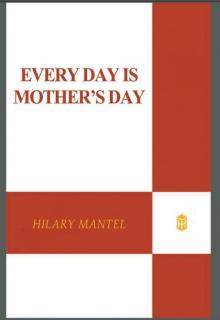 Every Day Is Mother's Day
Every Day Is Mother's Day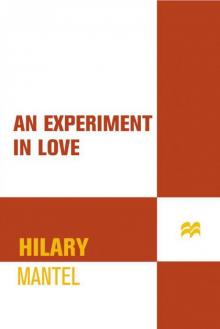 An Experiment in Love
An Experiment in Love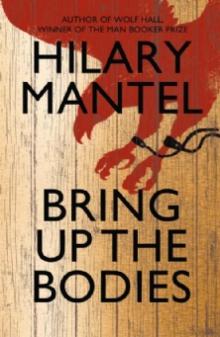 Wolf Hall
Wolf Hall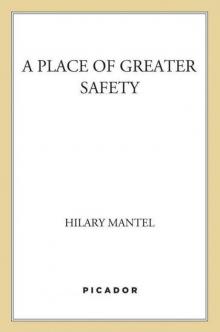 A Place of Greater Safety
A Place of Greater Safety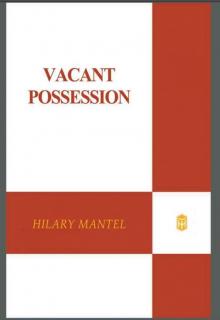 Vacant Possession
Vacant Possession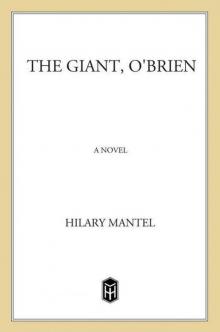 The Giant, O'Brien
The Giant, O'Brien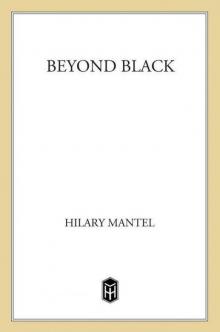 Beyond Black
Beyond Black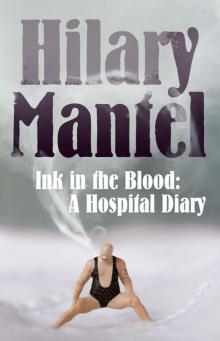 Ink in the Blood: A Hospital Diary
Ink in the Blood: A Hospital Diary The School of English
The School of English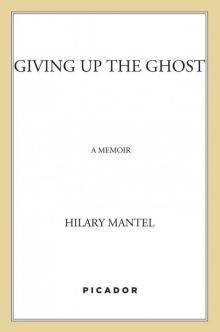 Giving Up the Ghost
Giving Up the Ghost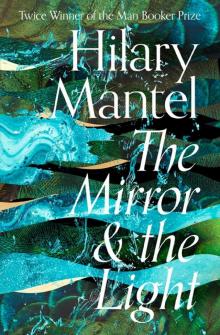 The Mirror and the Light: 2020’s highly anticipated conclusion to the best selling, award winning Wolf Hall series (The Wolf Hall Trilogy, Book 3)
The Mirror and the Light: 2020’s highly anticipated conclusion to the best selling, award winning Wolf Hall series (The Wolf Hall Trilogy, Book 3)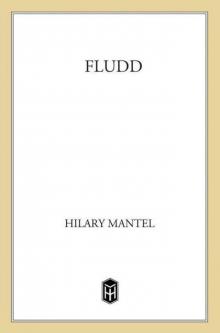 Fludd
Fludd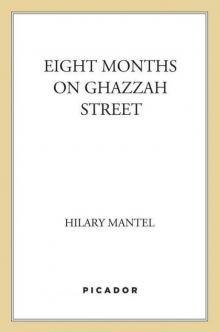 Eight Months on Ghazzah Street
Eight Months on Ghazzah Street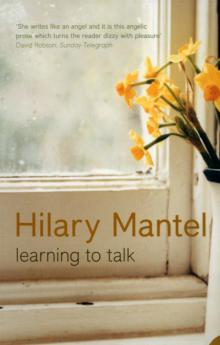 Learning to Talk
Learning to Talk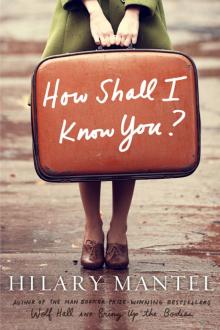 How Shall I Know You?: A Short Story
How Shall I Know You?: A Short Story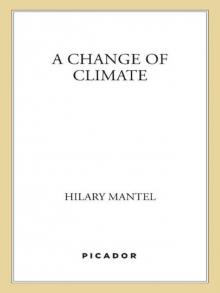 A Change of Climate
A Change of Climate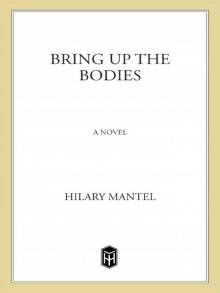 Bring Up the Bodies
Bring Up the Bodies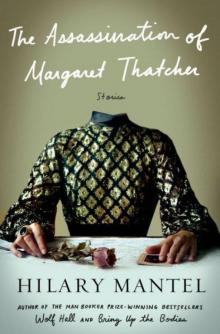 The Assassination of Margaret Thatcher: Stories
The Assassination of Margaret Thatcher: Stories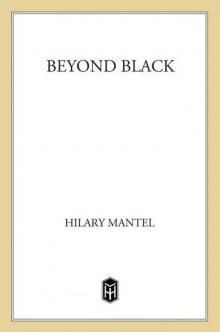 Beyond Black: A Novel
Beyond Black: A Novel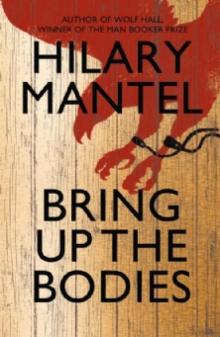 Wolf Hall: Bring Up the Bodies
Wolf Hall: Bring Up the Bodies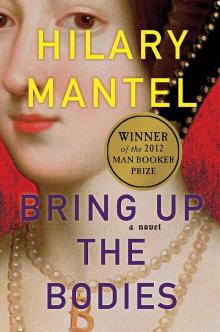 Bring Up the Bodies tct-2
Bring Up the Bodies tct-2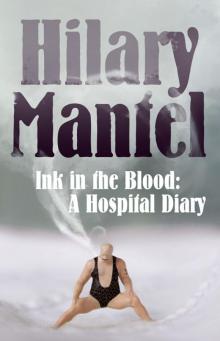 Ink in the Blood
Ink in the Blood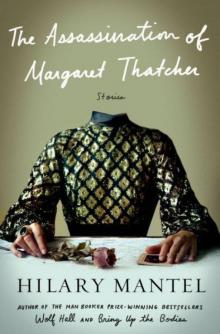 The Assassination of Margaret Thatcher
The Assassination of Margaret Thatcher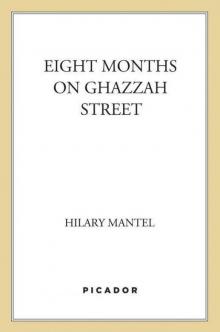 Eight Months on Ghazzah Street: A Novel
Eight Months on Ghazzah Street: A Novel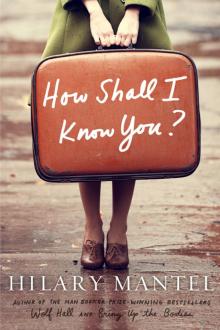 How Shall I Know You?
How Shall I Know You?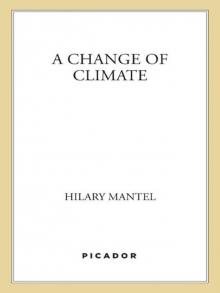 A Change of Climate: A Novel
A Change of Climate: A Novel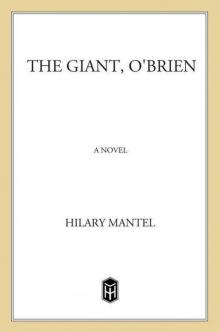 The Giant, O'Brien: A Novel
The Giant, O'Brien: A Novel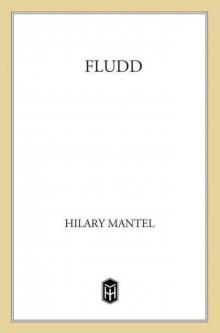 Fludd: A Novel
Fludd: A Novel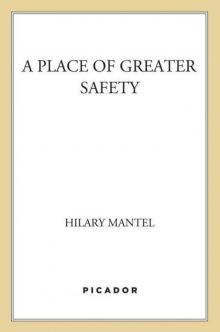 A Place of Greater Safety: A Novel
A Place of Greater Safety: A Novel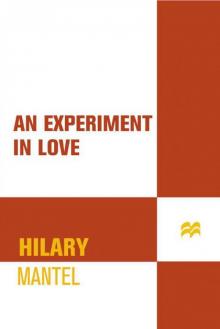 An Experiment in Love: A Novel
An Experiment in Love: A Novel